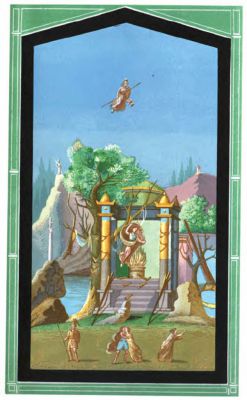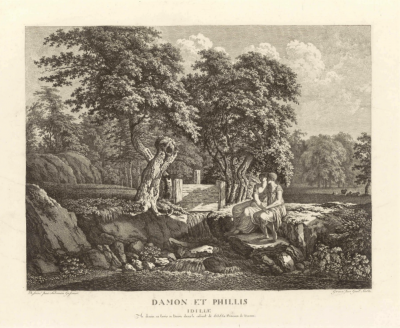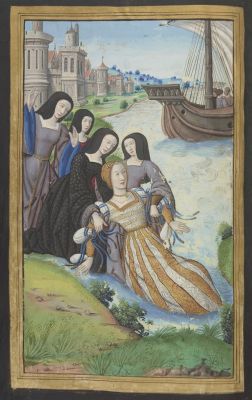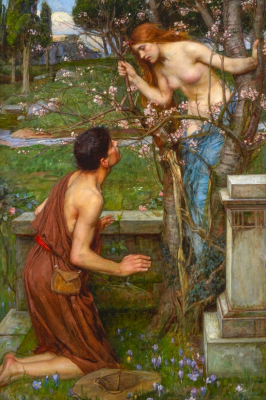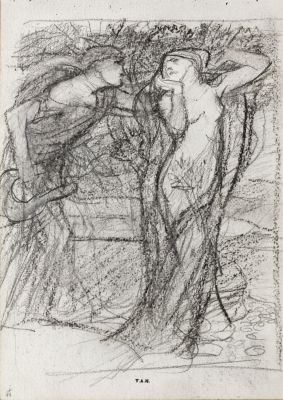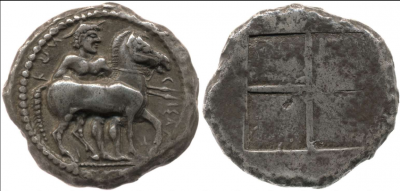
Phyllis or Phylleis or Cissa was a Thracian princess, the daughter of either Cissus, king of the Bisaltae, or of Lycurgus. She fell in love with Demophon, the son of Theseus (or with his brother Acamas), when the hero’s ship anchored in the mouth of the river Strymon, in Thrace, as he was returning from Troy. In one version of the myth, Demophon married Phyllis and received her father’s kingdom as her marriage portion. They had two children, Acamas and Amphipolis. A day came when Demophon wished to go back to his native Athens for a time, but promised to return to Thrace after a certain period. Upon his departure, Phyllis gave him a little casket, which she said contained objects sacred to Rhea; this he was not to open unless he was certain that he would never return to her. Demophon ended up in Cyprus (or Crete), married to another woman. One day he opened the box, and released a terrifying figure. Demophon leaped upon his horse to escape it, but the equally terrified animal bolted, throwing his rider, who chanced to fall upon his drawn sword and died. In despair at her husband’s failure to return, Phyllis invoked a curse upon him and put an end to her own life. In another version of the story, Demophon promised to return to Thrace and marry Phyllis as soon as he has put his affairs in Athens in order. On the day of his expected return, Phyllis went nine times to the shore to look for his ship, which is why the area was afterwards known as the “Nine Roads’ (Ennea Odoi); later, the name was changed to Amphipolis. In her grief and despair she called down a curse upon him and hanged herself from a tree at the place on the Nine Roads where they had parted. Servius (4th c.) offers a slightly different version of the tale: after her death, he says, Phyllis became a leafless almond tree; when Demophon eventually returned to Thrace he embraced the tree, which immediately put forth leaves.




